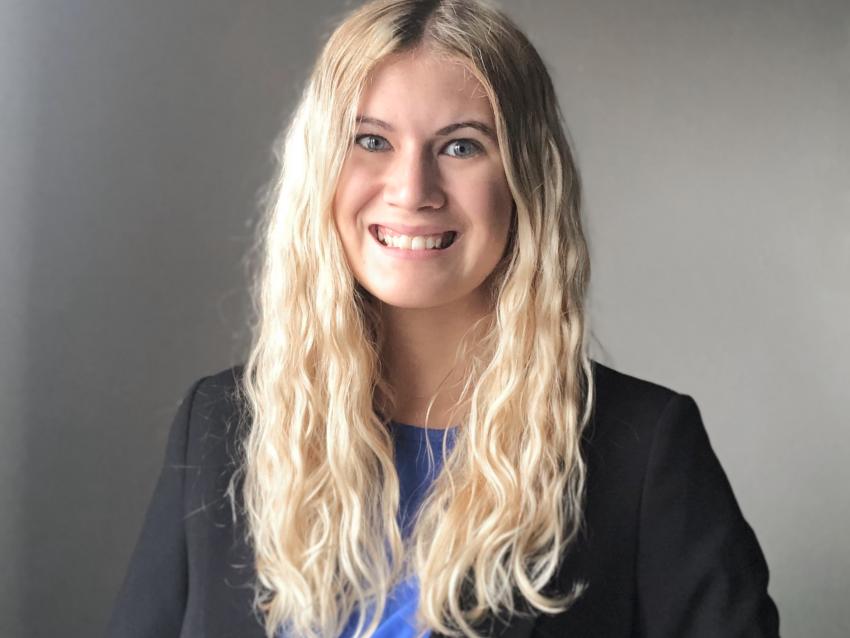
Summer Research Fellow Spotlight Sydney Daniels
"Cell biology and signaling are mediated by specific interactions between proteins. In order for a cell to function properly, proteins must be able to recognize their biological targets. The purpose of this project is to analyze and compare the patterns in sequences among calmodulin’s binding partners. I hypothesize that disease-associated mutations will alter the recognition specificity of calmodulin for its targets. To expand on this research, this project will examine how these mutations change the normal hydrophobicity patterns at the binding site. By converting the raw amino acid code into visual and musical representations, patterns can more easily be identified. Also, this virtual analysis innovates the way that scientific research is performed because it can be conducted entirely remotely."
Q: How did you first get interested in undergraduate research at UK?
A: "I was interested in conducting undergraduate research because I wanted to better understand and apply some of the concepts from my neuroscience coursework. Also, I am interested in pursuing a graduate education, so I was excited to see what it was like to conduct independent research."
Q: How long have you been engaged in undergraduate research?
A: "Fall 2019"
Q: Describe what a typical day of remote summer research activity looks like for you. How does this differ from your pre-COVID research activity?
A: "Every day is different, but some of my main research activities are conducting literature searches, reading, and creating and analyzing Excel sheets. Zoom calls with my mentor have also become part of my routine. I've learned about how mutations change the amino acid sequence of proteins and can cause disease. Before COVID, we had in-person meetings with the rest of our undergraduate research team, but we still worked conducted the research online."
Q: What has been the most exciting aspect of your research so far?
A: "It's exciting when I find new sources that we can use as data in the project. We are getting close to having enough data to start creating musical representations of amino acid sequences which I'm looking forward to!"
Q: What advice would you give to other UK students thinking about doing research?
A: "Deciding to get involved in research has been one of the best choices I made during the past school year! If you're interested in conducting research, the Office of Undergraduate Research is a great place to get started."
The UK Office of Undergraduate Research's Summer Research & Creativity Fellowship program provides undergraduates with the opportunity to study in a wide variety of disciplines while doing intensive and self-directed research under the supervision of a faculty mentor.